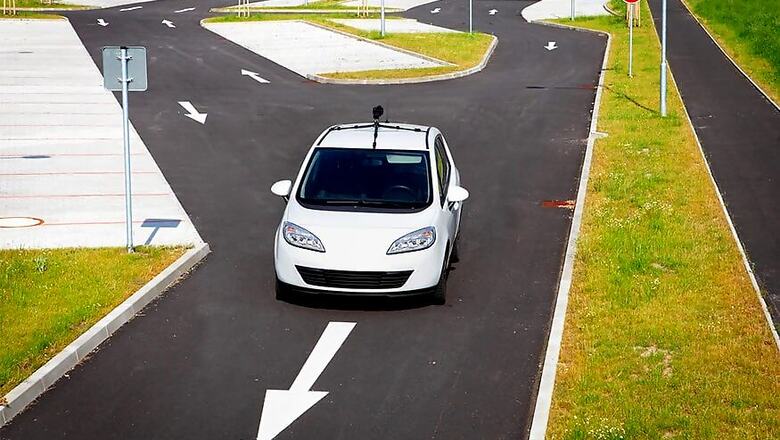
views
Silicon Valley is creating a crash course in self-driving car technology to address a shortage of engineers with help from a startup in a different field: online education.
Nearly every major tech company, car company and ride services company, it seems, is developing or partnering with developers of self-driving technology, from Google parent Alphabet Inc to Tesla Motors, General Motors Corp and Uber Technologies Inc, creating an insatiable demand for the people teaching the machines to think.
In about a year's time, a Lincoln sedan will be driving itself from Mountain View to San Francisco, using software developed by 250 or so students enrolled at education start-up Udacity, if all goes according to plan.
Udacity bought the Lincoln already equipped with the digital interface needed in autonomous vehicles; students will write the code.
Udacity's course, which costs $2,400 for three, 12-week terms, starts next month and was designed by company co-founder Sebastian Thrun, who launched Google's driverless car program.
Self-driving truck startup Otto, recently acquired by Uber Technologies Inc, automaker Mercedes-Benz and chip maker Nvidia Corp contributed to Udacity's curriculum.
"If you go through this curriculum you are on the bleeding edge of self-driving cars," said Thrun.
The aim of the program is a faster path to employment, Thrun said, in a career that has an average salary of $138,000. Mercedes-Benz, Chinese ride-service Didi Chuxing and others agreed to consider Udacity graduates for job openings.
The employer pool is growing quickly. Research firm and venture capital database CB Insights has identified 33 corporations working on autonomous cars, including automakers GM and Volvo, internet giants Baidu and Google, and Silicon Valley companies tech firm Intel and startup ride-service Lyft.
GM for one is hiring dozens of engineers in the area, and Uber is looking to fill more than 50 positions in Pittsburgh, where the company is building a fleet of self-driving cars, according to jobs website Glassdoor.
"I love people with MIT and Stanford degrees," Thrun said. But "there are a lot of people who can't make it to those institutions. There are entire generations of people who are equally smart and equally capable."
Yet the idea that a certificate from an online training program would secure a job in one of the most difficult emerging technologies strikes some recruiters as very unlikely.
A master's degree in computer science from a leading university such as the Massachusetts Institute of Technology or Stanford University is the usual and still preferred course.
"You'd be hard-pressed to say the Udacity candidate is going to be more qualified because they have some specific knowledge about self-driving cars, versus someone who has a rock-hard degree in computer science or data science," said Dave Carvajal, chief executive of recruiting firm Dave Partners, which fills executive jobs at venture-backed tech companies.




















Comments
0 comment